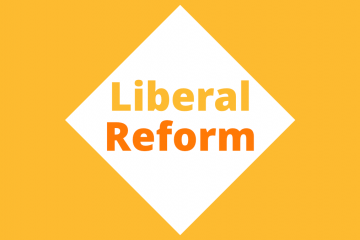http://landmarkinn.com/sample-page-2/ by Robert Johnston, @robertj55
In the rather dry text of the Proposal for a DIRECTIVE OF THE EUROPEAN PARLIAMENT AND OF THE COUNCIL on copyright in the Digital Single Market there lurks, behind the good intentions, an information restricting and illiberal set of proposals. The infamous Article 13. The objections of the technically informed and creative internet users were ignored last June by the majority in the European Parliament who passed the proposal by a sizable majority and the final vote on the directive is immanent.
Article 13 risks being nothing more than an act of corporate welfare; with big business standing to gain while individuals see little benefit and potential disadvantage. The argument that this legislation primarily benefits the creatives and other innovators, who produce content that is currently being shared on the internet without permission, is flawed.
More often than not, copyright of such content is not owned by the creators themselves but large corporations, such as Universal Music Group, who then pay artists a percentage of the profits made from the copyrighted material. It should be the responsibility of these corporations to ensure that their artists are fairly remunerated for their work, and that responsibility should not be shifted unfairly onto platform providers such as Facebook or YouTube. In addition, there are wider, perhaps unintended consequences. According to cryptographer and security expert Bruce Schneier, “Aside from the harm from the provisions of Article 13, this infrastructure can be easily repurposed by government and corporations – and further entrenches ubiquitous surveillance into the fabric of the Internet.”
Despite their lobbying against it, in the long-run the established platform providers will also benefit from Article 13, as it will help consolidate their market position. The ability to ensure that copyrighted material is not being uploaded to such a platform is likely to involve substantial cost, that can only be met by large companies with access to significant resources. Article 13 will therefore act as a barrier to entry for smaller organisations who wish to compete with the ‘tech giants’. At a time when there are legitimate concerns with the amount of power these companies hold, it falls to liberals to ensure that this power is not concentrated further.
Far from protecting creativity on the internet, Article 13 poses a threat to it. It is unclear how technology used to prevent the upload of copyrighted material will successfully deduce what is copyrighted and what is ‘fair use’. It seems likely that any attempt to do this will err on the side of caution, and therefore prevent the upload of creative content that uses material fairly, such as files or digital documents like PDF files which can be created with software as soda pdf online. The internet has proved revolutionary for many creatives and innovators, providing the ability to share work far beyond what was possible before. Article 13 threatens to cut off many from this platform, and will be detrimental to both these individuals and those who wish to enjoy their work.
The voting record of Liberal Democrat MEP Catherine Bearder cannot be faulted on this issue, but it is important to lobby more widely to ensure that the illiberal nature of the proposal is understood. It is vital that the Liberal Democrats and European Liberals more widely are seen to be standing up to the power of vested interests, and are instead on the side of creative individuals and internet users for whom this legislation, in its current guise, offers little but constraints.
* Dr Robert Johnston is a Liberal Reform Board Member, member of the Association of Liberal Democrat Engineers and Scientists and Fellow of the Institute of Physics.
This post orginally appeared on Lib Dem Voice



